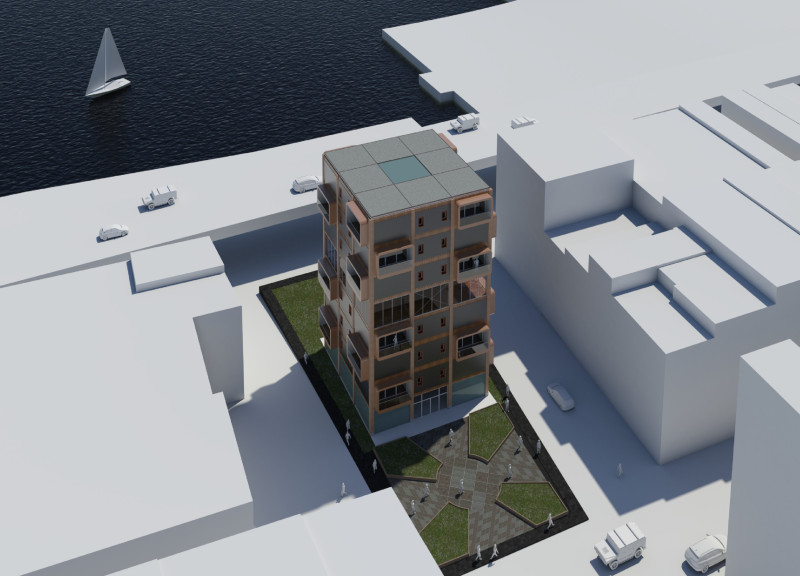5 key facts about this project
Modular Design Approach
One of the key aspects of the Urban Drawerbox is its modular design. The project consists of prefabricated housing units that can be added or reconfigured based on community needs. This flexibility enables the creation of various residential types while maintaining a cohesive architectural language. Each unit is produced using lightweight materials, such as timber and Wikkelhouse® cardboard shells, minimizing environmental impact and construction time. The design allows for varying heights and layouts, facilitating efficient use of space within urban settings.
Sustainable Material Selection
The Urban Drawerbox utilizes a variety of materials that emphasize sustainability and performance. Timber serves as the primary framework, offering a renewable resource option that reduces carbon emissions during construction. Wood-derived materials and OSB panels provide necessary insulation and structural integrity. Additionally, the integration of recycled plastic panels from KLP enhances the overall sustainability of the design, utilizing materials that otherwise would contribute to waste.
Community-Focused Spaces
The structure is not solely residential; it also incorporates communal areas that promote community engagement among residents. The design allows for open spaces at various levels, which can serve multiple functions, from social gatherings to communal gardens. This consideration of community interaction distinguishes the Urban Drawerbox from traditional housing projects, making it an urban habitat that encourages collaboration and connectivity.
In summary, the Urban Drawerbox represents an innovative approach to urban living, blending prefabrication with sustainable practices while prioritizing community interaction. For a comprehensive understanding of the project, explore the architectural plans, architectural sections, and architectural designs that provide further insights into its unique approaches. Delve into the architectural ideas that underpin this project to appreciate its potential impact on urban housing solutions.


























